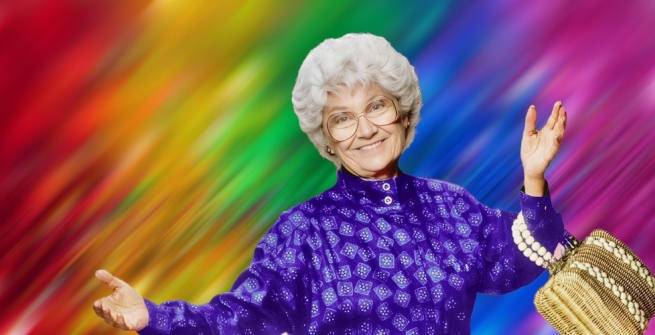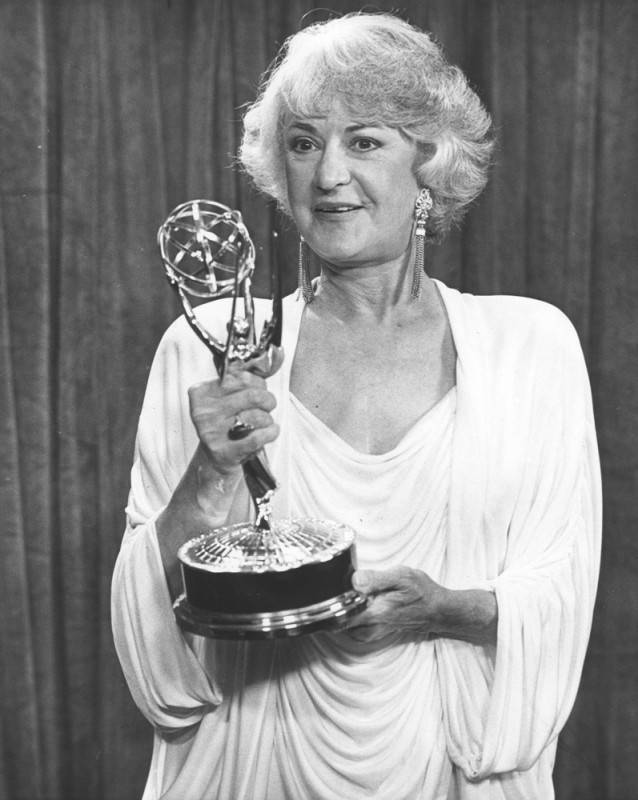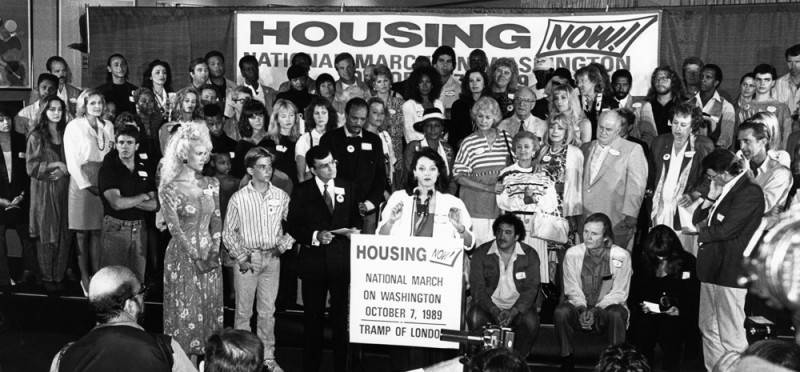On March 7, 2025, the New York Times included me, well, more precisely, something I owned, in a feature story regarding materials that were salvaged from the Eaton Fire. By the time the item and my story ended up on their website, it had been frankenbyted to the point that I couldn’t recognize what I had shared. In its present incarnation, it negates what I believed was the silver lining in my story. My contact with the Times let me know that the final result was heavily abbreviated by the editors, apologizing profusely, but I didn’t blame them, and I wasn’t particularly offended, but the story deserves better. This is my opportunity to do better.
Two months before the piece was published in the Times, I lost everything I owned in the aforementioned fire. It goes without saying that the complete and utter disruption of every facet of my life has stirred a torrent of emotions that I’m still processing but, while under this dark cloud, something occurred that was both tragic and strangely life affirming with the TV show, the Golden Girls playing a prominent role. Pride Month seemed to be the right time to share.
The TV Generation
I was the last of four children, and there was a ten-year age gap between me and my nearest sibling. My parents were working class and had already raised three children, so they were understandably exhausted by the time I showed up. When you’re the youngest kid in this particular dynamic, it’s difficult to explain how it feels, but I think writer Michelle McNamara said it best when she compared it to showing up to a party just as everyone else is leaving. The positive side was that I grew up self-aware, self-sufficient, and mature beyond my years. Even at a young age, I knew my reality was that my parents had to work to provide, and my teenage siblings were too involved in their own lives to be interested in what I was up to. This usually left me to my own devices, and, by default, television was frequently my babysitter, and I watched far more than I should have. I was what Paddy Chayefsky derisively called "TV Generation."
“...And then There’s Maude…”
My formative years were, in fact, shaped by television. Sometimes I watched it by myself, and other times, typically at night, I would watch with my parents. My father was partial to Hunter, the cop show starring Fred Dryer and my mother liked Spencer for Hire with Robert Urich (though an absorbing novel took precedence over Mr. Urich often enough). Their tastes in programming rarely overlapped, but one block of programming on NBC was a happy median - Empty Nest and the Golden Girls. Those two shows were light and cartoonish enough that even I could enjoy them, though I found myself asking my parents about topics that were well over my head, with my father’s answer to “what’s menopause?” still seared into my brain. Even today, I have fond memories of these shows, but I have little recollection of their original broadcasts. What I can recall is laughing at some very funny writing brought to life by some very talented actors who created characters now embedded in the collective zeitgeist. My parents were particularly fond of the Golden Girls based largely on their love of Bea Arthur and her old television show, Maude. I never saw an episode of Maude, so I couldn’t share my parents’ nostalgia, but the sarcastic, tough-talking, baritone-voiced Maude would have been my parents’ best friend, if she were real. Maude was a woman who called out bigots, made sharp-tongued jokes, and refused to back down when she knew she was right. Arthur’s character in the Golden Girls was, in effect, Maude reincarnated, so it's easy to understand why the "Girls" were a staple in our house until the show ended in 1992.
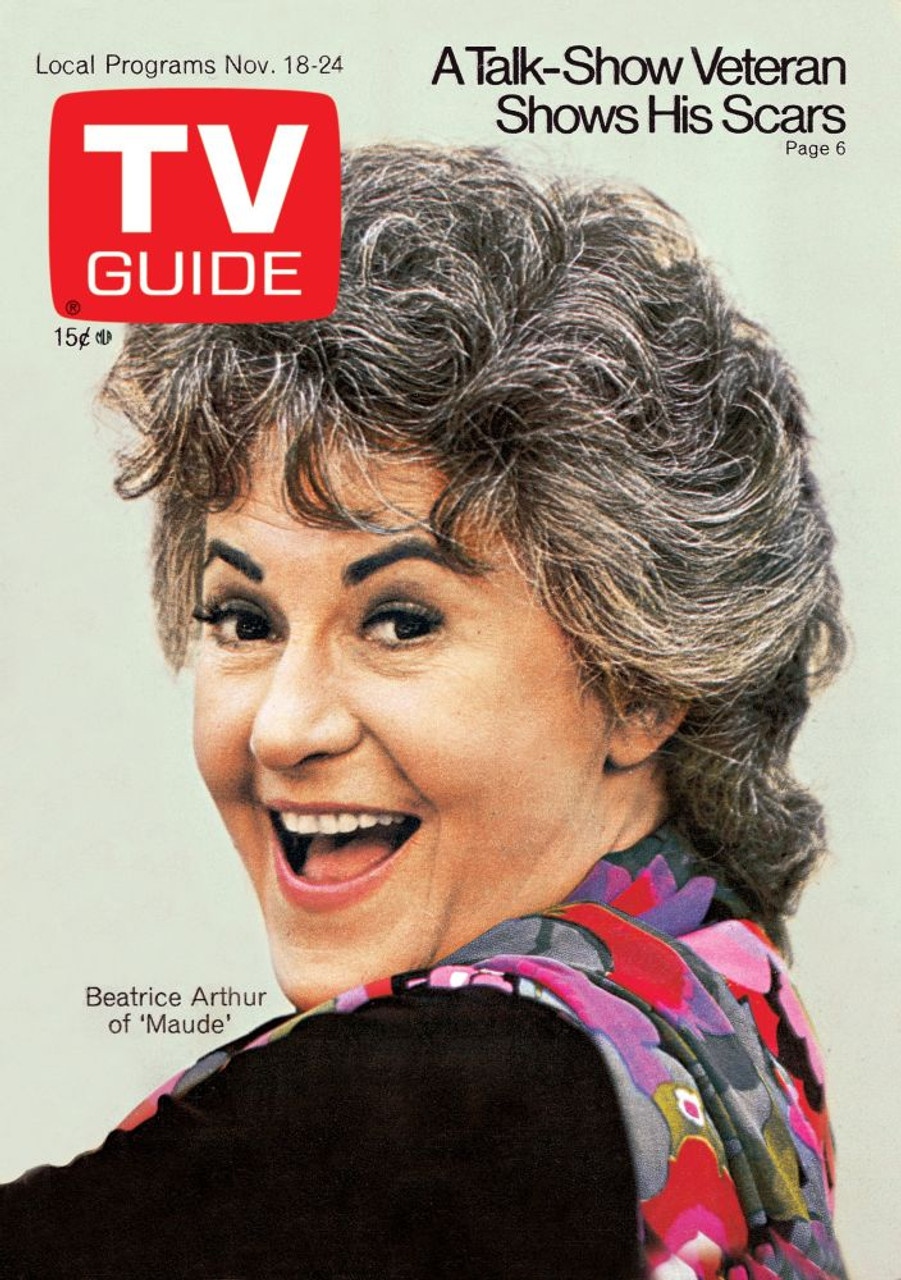
I can’t say that the show and its characters left my consciousness for the simple fact that it always seemed to be on TV. In reruns, the show was a lot further down the dial, but it was a familiar entity that I could leave on in the background while I was doing something mundane. Some of the scenarios became even more hokey than they were in prime time, but individual jokes are still sharp and expertly delivered, ensuring some kind of fresh timelessness. More than that, the actresses and the characters they created feel like old friends or a beloved aunt who has the power to make you smile even when you don't want to.
It’s anybody’s guess when nostalgia for the Golden Girls began. Some would point to the day it went off the air or when the Lifetime channel began marathon showings but I seem to recall an avalanche of Golden Girls related merchandise appeared around the time the cast (with the exception of the iconic Betty White, of course) began to pass away—Estelle Getty in 2008, Bea Arthur in 2009 and Rue McClanahan in 2010. Officially licensed "action figures," board games, bobbleheads, clothing, and even breath mints seemed to show up everywhere while sites like Etsy and Redbubble turned the Golden Girls into a cottage industry. This sentimentality was (and is) quite literally everywhere, but has become so abundant that I often scratch my head over it. In the gay community, it's become a punchline of sorts that even I don’t fully understand but I recognize that the show is a unifying bond across queer communities and, as a member of that community, I embrace it as such.
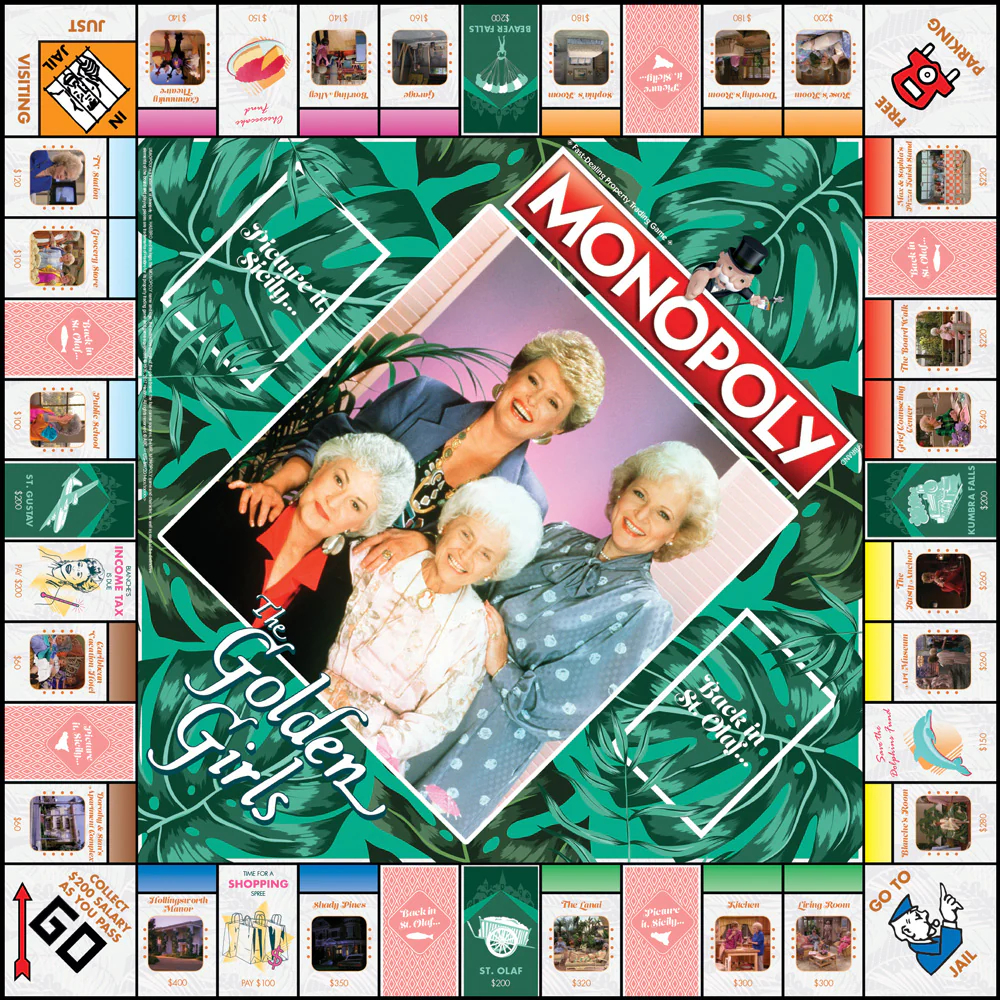
The show skirted LGBT+ elements often enough, injecting a queer character or storyline now and then but the fictive kinship among the characters mirrors the family structure that exists within LGBT+ communities, what writer Armistead Maupin cleverly referred to as "logical" family (as opposed to biological). Yet, the diagetic elements of this show seem to be only fragments of the larger kinship that the gay community has with the "girls." This evergreen fascination extends beyond the fourth wall because of the allyship the actresses who played these roles brought to the LGBT+ community in real life. Getty, for example, got her start in 1982 playing Harvey Firestein’s mother in Torch Song Trilogy on Broadway and was front and center as the AIDS crisis ravaged the theater community. In response, the actress became an activist and advocate during the height of her stardom on the show, helping to establish an AIDS hospice in North Carolina while personally caring for a nephew who had contracted the virus (he passed in 1992). Similarly, Arthur, described by the Hollywood Reporter as "a pillar of liberal-minded fortitude, always at the ready to do battle with the Archie Bunkers of the world," was a longtime advocate for the gay community. Arthur volunteered her time and appeared with the Gay Men’s Chorus to raise funds for health initiatives and even left a financial gift in her will to the Ali Forney Center, a residence for gay, lesbian, and transgender youth abandoned by their families. All of this is to say that these women put their money where their mouth was, earning the respect and admiration of the gay community, and it was based on more than just their status as entertainers, and this allyship was reflected in the characters these women portrayed.
A Friend of Dorothy
From the minute I first saw them, Dorothy Zbornak, the character played by Bea Arthur, and her mother, Sophia Petrillo, played by Estelle Getty, made the biggest impression on me. These two characters were oddly familiar to me, but it would be a long time before I understood why. The two characters were cut from the same cloth: imbued with a deep sarcasm, capable of cutting remarks, droll glances, and sharp tongues neither could hold. But it wasn't merely the ability to come up with scathing retorts that made the characters compelling, there was some fundamental humanity that underlined their relationship. An outsider looking at that relationship might interpret it as adversarial given the ongoing sarcasm, threats of being cast off to the retirement home ("Shady Pines, Ma!") and bold insults that were hurled about with ease but, what I saw was a pragmatism that had been influenced by tragedy and "hoping for the best" while "expecting the worst." Underlying any perceived 'cattiness' are love, respect, and a wickedly dark sense of humor that still resonates. Sophia’s cantankerous retorts were particularly engaging and, as much as it pains me to admit, I’m recognizing aspects of that character within myself and, evidently, other people have noticed it as well. A few years back, my sister-in-law gifted a "white elephant" gag gift to me. It was one of the officially licensed Golden Girl products in the form of a Golden Girls branded Chia Pet. The "pet" is a bust of the character of Sophia Petrillo. The gift was an acknowledgement of my love for the television show, but also an allusion to my limited ability to self-censor and make dry, cutting remarks like the character. Sophia could easily stand as my avatar, at least in spirit, if nothing else. Looking at the "pet" as more of a collector's piece, I kept it in the box on a top shelf of my home in Altadena, where it sat for years, only to be displaced on the evening of January 7, 2025.
"Picture it: Altadena, 2025…"
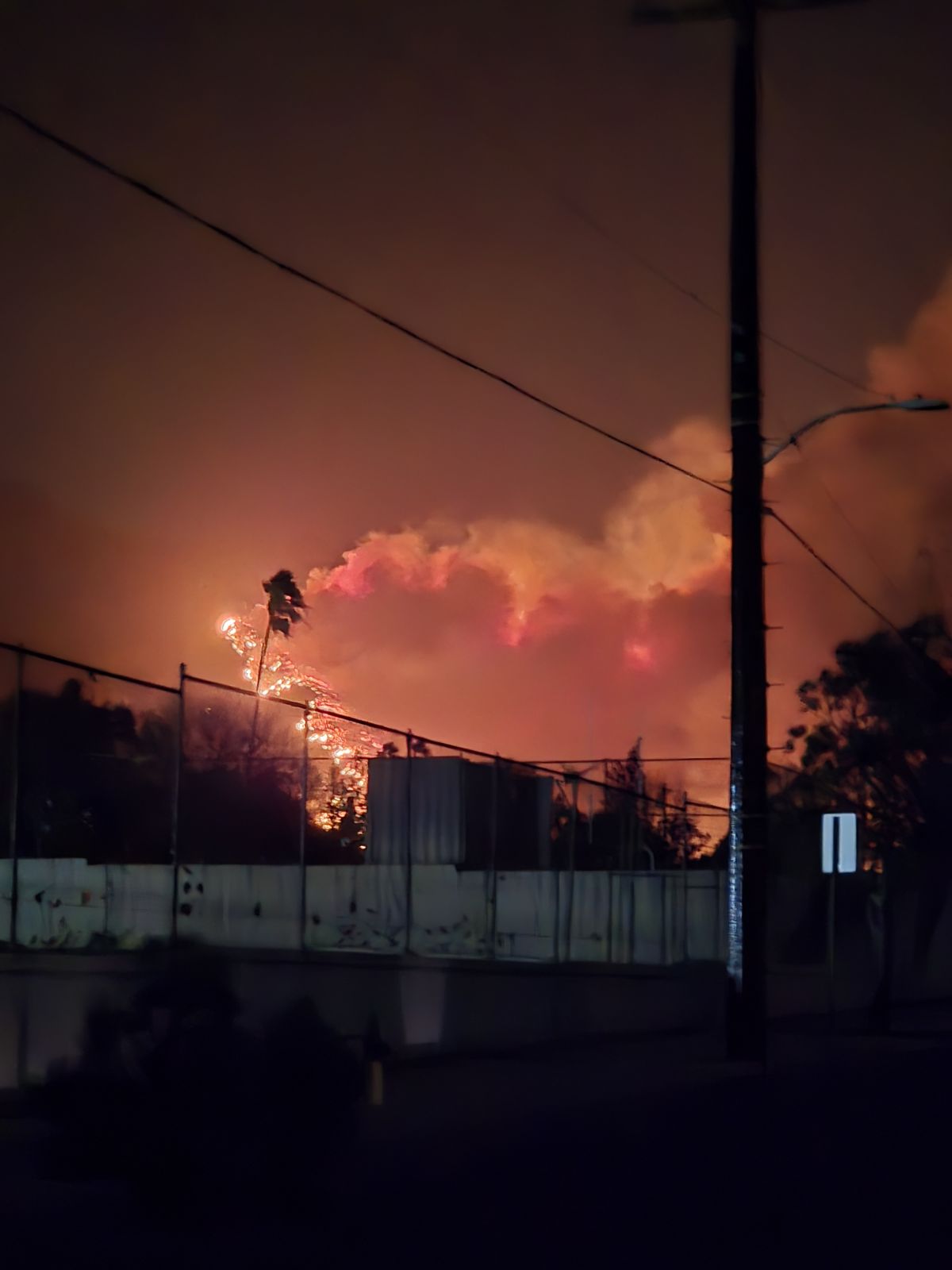
The night of January 7, 2025, was surreal. I was working the closing shift here at the library when I learned that Altadena was on fire. Knowing I couldn’t go home, I drove to my in-laws' home in Pasadena. Leaving Downtown L.A., everything was normal; I didn’t see or feel wind, but evidence that it had ravaged Los Angeles was all around, with uprooted eucalyptus trees all over the Arroyo Seco Freeway. By the time I reached the end of the freeway, the malevolent Santa Ana winds made themselves known. The first thing I noticed was that the guerrilla "Now Entering Van Halen Country" sign I loved so much had toppled despite having a cement foundation. It was merely an omen of things to come. Driving through Pasadena was terrifying—I saw small cars swaying in the wind, trees and branches littered the streets creating an obstacle course, and it was so smoky that you couldn't see more than a block ahead. I made my way to my in-laws' house and tried to sleep, only to be jolted out of bed when we had to be evacuated around 5 a.m. We ended up at the home of the sister in-law who gave me that Chia Pet gag gift so many years ago, and stayed there for the next two days.

Two days later, I still didn’t know if I had lost my home, so I decided to make my way to Altadena to obtain some kind of certainty. Altadena looked like Berlin in the aftermath of World War II, with the Sheriff's Department and the National Guard on every corner. I managed to make my way to my street and saw the entire block had been wiped out. I got to the spot where my home had been, with the only recognizable marker being the chimney and a wrought iron bookshelf that now looked like a clock in a Salvador Dali painting. I scanned the minutiae looking for something salvageable, and as I moved around, I recognized the remnants of what used to be my water heater with something the color of a cooked salmon dinner sitting on top. It took me a minute to realize what it was, and I could only think, "You have got to be kidding me." In a perfect "don't do this at home, kids" moment, I stupidly waded across the rubble in a pair of well-worn Jack Purcell sneakers, mercifully managing to avoid every rusty nail in my path. At the end of this prospective tetanus-in-the-making journey, I looked down to see a terracotta Sophia Petrillo staring back. My familiarity with Estelle Getty's voice allowed me to hear Sophia Petrillo barking at me in a Brooklyn accent to "get her the hell out of there." The tears streaming down my face belied the fact that for the first time in two days, I laughed.

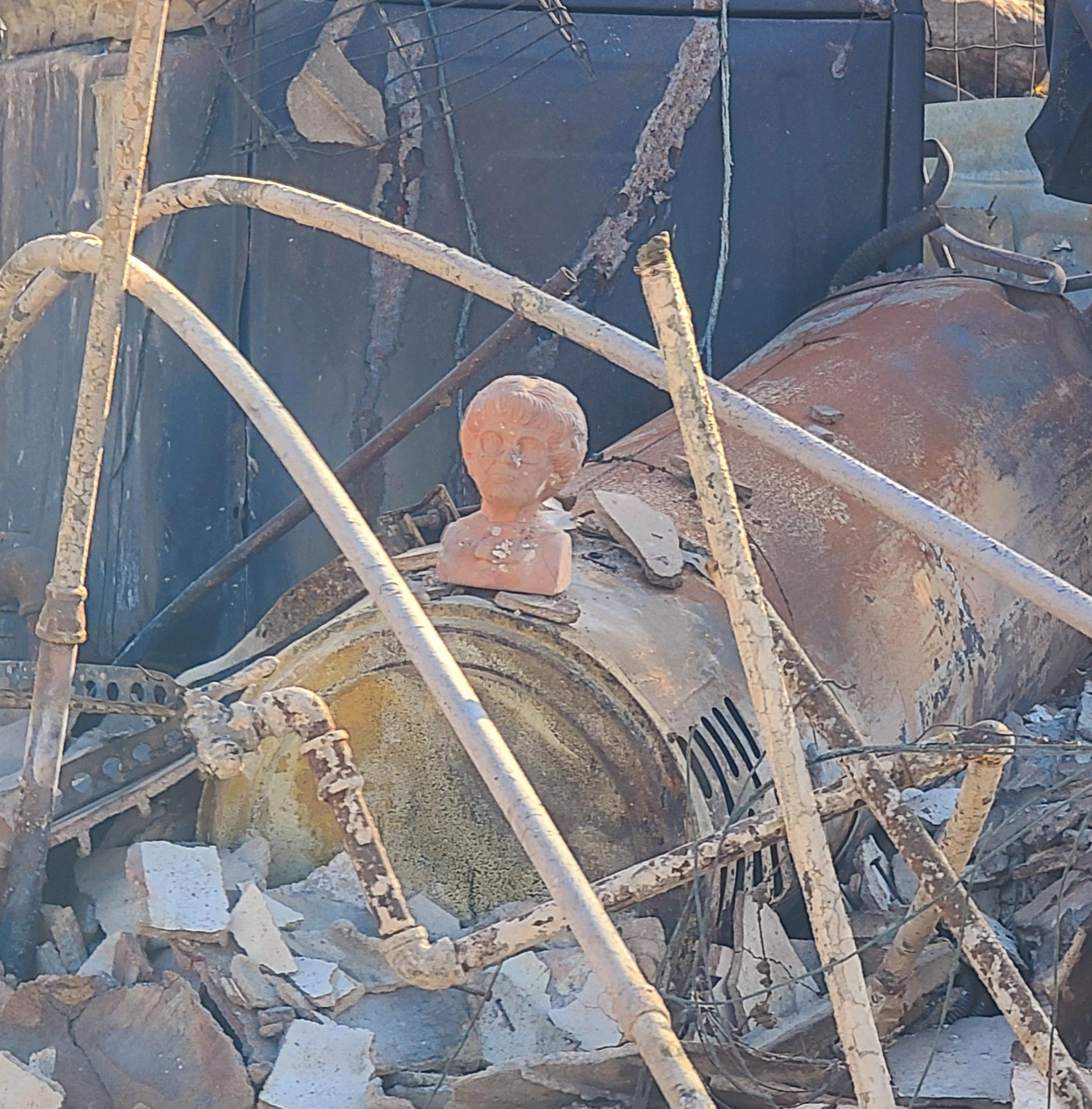
I interpreted finding this object in the sea of chaos that used to be my life as a positive thing—a terracotta soothsayer silently telling me there will be a future after this horrific event. Stepping back from my own micronarrative of this cataclysm, I could see the irony that a gay man who lost everything was being reassured by, of all things, a Golden Girl taking the form of, perhaps the kitschiest gift imaginable, a chia pet—it was pure camp and oddly poetic, more than that it was oddly, life-affirming. And that's what the Times piece missed.

This Sophia Petrillo will not be threatened with being cast off to Shady Pines Retirement Village. She stays with me as a reminder of endurance, an appreciation of life, and the good things it has to offer us. She is a manifestation of my pride, in every sense of the word.
I dedicate this to my coworkers and friends who lost their homes in the Eaton Fire. You are all brave, strong, good people—I pray each of you finds your own Chia Pet and, pardon the cliché but thank you for being a friend.
